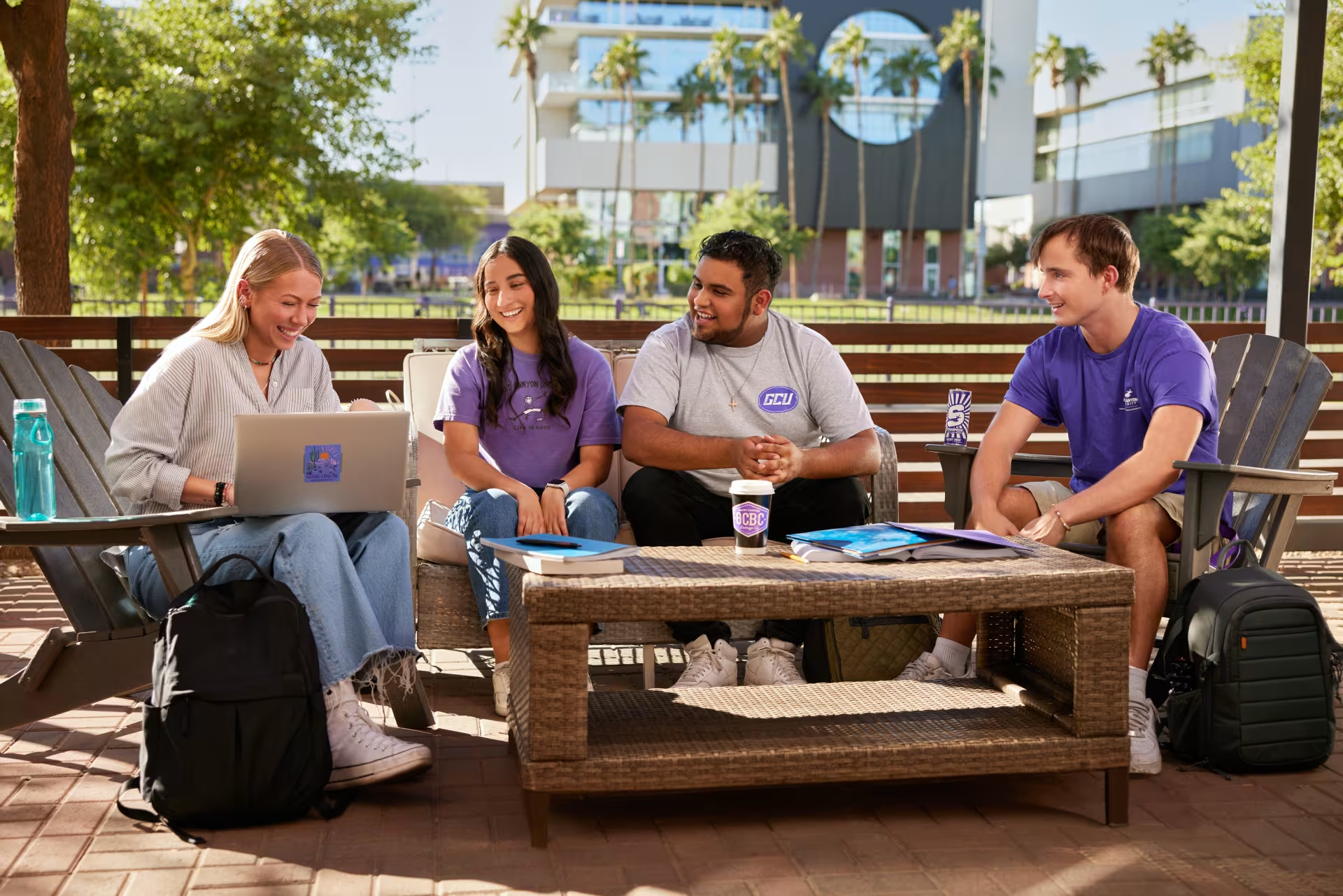


A master’s in teaching reading in elementary education may prepare you to pursue a potential career helping young children experience the joys of reading. With advanced competencies in literacy and elementary education, you may be positioned to pursue work in settings such as public, private and charter schools.(See disclaimer 4)
Graduates with this academic specialization can pursue positions in the classroom as elementary, middle school or secondary school teachers. You may also find yourself in roles performing the following duties:(See disclaimer 5)

Explore the following frequently asked questions and answers to get more information about becoming a teacher who specializes in teaching reading to elementary students.
What is the best master’s degree for elementary teachers?
What is a reading teacher called?
How do you become a reading specialist?
This master's in reading degree program has earned full programmatic accreditation by the Association for Advancing Quality in Educator Preparation (AAQEP). This accreditation underscores the program's commitment to teacher preparation excellence. It attests to both the high-quality curriculum and the effectiveness in nurturing educators dedicated to continuous growth. In addition, Grand Canyon University has been institutionally accredited by the Higher Learning Commission since 1968. This recognition showcases GCU’s commitment to maintaining high standards of academic quality.

GCU has embraced online education for working adults who are looking for a way to further their career qualifications while continuing to meet their current responsibilities. If you’re interested in earning your master’s degree in reading online,(See disclaimer 2) you may find that GCU’s digital learning platform offers both convenience and flexibility while preserving the quality of instruction. You’ll be taught by instructors who are knowledgeable in their fields. You may benefit from stimulating discussions with your peers via the interactive digital platform.(See disclaimer )
This master’s in reading: elementary education degree program focuses on effective, collaborative approaches to literacy instruction. You will be taught how to apply advanced theories and evidence-based strategies to support corrective reading and effective instructional methods. In addition, you will explore how to encourage the development and maintenance of literacy-rich environments and how to integrate literacy across curricular areas.
GCU offers curriculum from a Christian worldview, with faith-integrated courses that can prepare teachers to lead by example and serve as a positive influence in the classroom. GCU’s academically rich literacy education degree covers skills and teaching strategies that are immediately applicable in the classroom.
The curriculum for this master’s in reading: elementary education emphasis provides a comprehensive survey of literacy — from reading assessments to instructional methods and beyond.
You can expect to explore subject areas such as:
Methods of engaging learners of diverse backgrounds and skill levels
Planning, developing and evaluating reading curricula
Leadership models for the promotion of literacy
Evidence-based best practices in reading and writing processes
Brain-based learning with neuroscience principles
Effective communication strategies for young students
Advanced assessment systems and data interpretation at the school and district levels
The role of advocacy in literacy leadership
Literacy is the foundation of learning.(See disclaimer 1) All students deserve the opportunity to benefit from rich and varied reading experiences. The Master of Arts in Reading with an Emphasis in Elementary Education at GCU is designed to strengthen the skills of current educators in delivering effective reading instruction for K-8 learners. By applying proven strategies in teaching reading in elementary education, educators can be equipped to promote fair access to literacy for diverse student populations.
The College of Education has aligned this degree with the standards established by the International Literacy Association (ILA). This degree does not lead to licensure and combines coursework with observational and practice-based learning experiences. A university counselor can help you better understand if this program fits your needs.

This master’s in reading program includes a practicum/field experience component, which provides reading specialist and literacy coach candidates with hands-on experience.
This is an advanced program for licensed teachers; therefore, to apply, you must submit a copy of your current teaching license. Alternatively, you may submit documentation proving a minimum of one year of teaching experience. You are required to obtain any necessary licenses, certifications or endorsements from the state in which you plan to teach.(See disclaimer 3) In addition, this degree program requires all applicants to have access to a K-8 classroom to complete the practicum/field experience. Visit the admissions page for more information on GCU’s admission requirements.
During your practicum/field experience, you will be expected to:
Develop a Literacy Work Sample (LWS)
Implement literacy intervention instruction
Coach peers in literacy best practices
Up to 12 credits or 1/3 of the total program requirements in transfer (whichever is less)
Credits: Fill out the Lopes Eval to find out what will transfer
Admission Requirements (Master's)
OR 2.5+ Unweighted GPA and
Admission requirements may differ based on degree level, program and modality, or transfer status. Some programs of study may require a higher GPA and/or other qualifying criteria for admission. Please review full admission and program requirements in the University Policy Handbook.
* Degree must be from an accredited college or program that has been approved by GCU.
** Combined verbal/quantitative, after August 2011 (1,000 combined verbal and quantitative, prior to August 2011).

If you’re passionate about literacy and about giving children a firm foundation for their future, apply today for enrollment in GCU’s online master’s in reading program.
If you are seeking licensure/certification, please refer to the "Accreditation and Compliance/State Disclosures” link for the specific program of interest’s website for your location and/or employment state’s licensure requirements, per 34 CFR 668.14(b)32 and 668.43(c).
Excluding observational and practice-based experiences and student teaching.